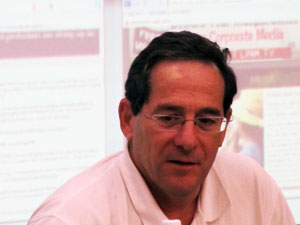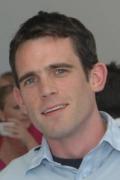
SYDNEY (Pacific Media Watch): Media veterans and academics have called for greater collaboration in the industry at the "Back to the Source" investigative journalism conference in Sydney at the weekend.
Robert Rosenthal, executive director of the American not-for-profit Centre for Investigative Reporting (CIR), was keynote guest and repeatedly called for journalists to “drop the ego” and focus on getting their story out in the best way in order to have the best impact.
He said that way the story was the focus and credibility is gained in the long-term.
“We don’t want to be seen as partisan,” he said.
“The polarisation of the news media in the United States and in a similar way in Australia is extremely dangerous.”
Rosenthal described the CIR approach as an effort to commit journalists to investigative reporting, working in teams and then working with media organisations to publish their work.
Need for trust
“We have a good relationship of collaboration with the public broadcaster,” he said. “It involves a tremendous amount of trust.”
The trust and collaboration is crucial to the CIR’s stories achieving maximum impact. It involves a system of transparency with other NGOs.
Rosenthal said there were up to 60 not-for-profit news organisations working in collaboration.
“We have many distribution partners,” he said. “The concept of exclusivity has been shattered.
The CIR, founded 1977, also partners with CNN, the Washington Post and media outlets all over the world. It is the first organisation of its kind and is funded by donations.
Rosenthal said CIR was not aiming to draw viewers to its site.
“It’s not a destination site, but we want to push it out,” he said. "But one story in one day might have 150,000 unique views.”
He said the CIR did not get the credit but in the long term it would have credibility and would achieve its goal of providing informative reports to the public.
“It’s not about publicity, but informing people.”
There were some Australian examples of collaboration on display at the conference, with Sue Spencer from the ABC’s 4 Corners programme talking about the story “Dirty Money” – last year’s exposé on the Reserve Bank of Australia and the allegedly corrupt activities of some of the staff of the subsidiary company Securency.
The story had been originally broken by The Age journalists Richard Baker and Nick McKenzie, and they partnered with the ABC to bring the story to TV, as a way of "getting the story out".
'Break down barriers'
Speaking of the endeavour, Spencer agreed that the possible impact of a story must come before competition between news organisations.
“We have to break down barriers, not see ourselves as separate silos,” she said.
“If you've got a good story, you want to make sure it gets out and has an impact.”
Spencer said that there was even rivalry within the same organisation such as ABC programmes Foreign Correspondent and 4 Corners.
It was something ABC producer Jess Hill confirmed when talking about her reports on the Libyan revolution, and how painful it was to share her Libyan contacts with colleagues after six months of hard work accumulating them.
While these are common experiences of most journalists, there were more calls to abandon traditional journalistic practices and put the public interest first.
Freelance journalist and author Antony Loewenstein, speaking about Wikileaks, said Julian Assange’s efforts were miles ahead of the mainstream media, as he was not concerned about corporate pressures, and delivered maximum information to the public.
“The power the mainstream media has is to choose the agenda,” he said. “[Wikileaks] shows the public the stories we aren't seeing. It threatens the power that has lasted so long.”
He said journalists needed to give up that power of having the information they were privy to, and to be open to more interaction with citizens on their websites.
Editor-in-chief of The Age Paul Ramadge spoke about Brian Stelter at the New York Times, who "tweets" his story idea in the morning, asks the public for some good questions, then calls his subjects.
No more 'exclusivity'
“This is building the reputation for smart, crowd involvement in traditional journalism,” he said.
“Australian journalists will have to get over the notion of exclusivity on every platform.”
Rosenthal also called for more teamwork in journalism.
“The best journalism is created by teams – there’s a tremendous sense of being open, listening and learning.”
In what could be a beginning for the sort of work that CIR undertakes, Monash University’s Bill Birnbauer outlined his plans for his Unimuckrackers project.
“It’s about the university and the newsroom working together,” he said of his recent trend to have students do investigative projects for their assignments.
However, he is circumspect about its possible success.
“Investigative journalism by students creates a hell of a lot of problems.”
He spoke about possible legal challenges and the lack of “institutional support” that major news organisations enjoy.
He gave the example of the Dangerous Ground reports on Victoria’s Environmental Protection Authority, where students scrutinised the effectiveness and capabilities of the environmental regulator.
Hard work and 'no brownie points'
He said there was a lot of learning involved on the part of the students, but also a lot of work at his end.
“You clearly can't put stories in assignment form on a site like this,” he said.
“You don't get any academic brownie points for doing this by the way, you just do it because you want.”
He also defended the idea of having the information as a public resource and detaching oneself from the glory of breaking a big story.
“It doesn't matter if there’s not a huge impact. The information is out there, some will look at it, others will ignore it or argue with it. Whatever the case, that's a public good in a democratic society.”



